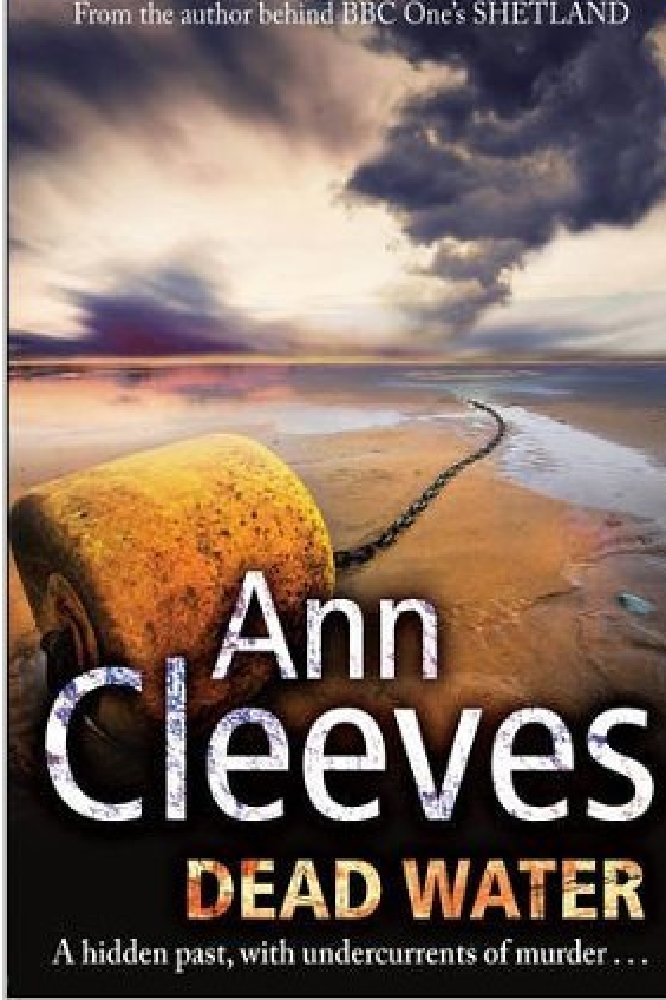
Dead Water
Dead Water is the fifth book in the Shetland series. Fair Isle detective Jimmy Perez is back in action. Jerry Markham, a Shetlander who went on to be a high-profile journalist, is found murdered in a yoal, a traditional boat. He's floating on the water close to the house of Fiscal Rhona Laing. The book looks at the place of the oil industry and renewable energy in the islands, as well my more usual concerns about fractured families, and the influence of this bleak and beautiful place on the people who live there.
What is the appeal of the traditional detective story for you as a writer?
I like working within the framework of the traditional detective story. Not having to worry too much about the plot, gives me the chance to explore in more detail the relationships between my characters. As a reader I love the thrill of the surprise ending and I'd like to provide the same treat in my books.
You worked as a probation officer, bird observatory cook and coastguard before becoming a writer, so at what point did you decide that this would be your way?
I was writing when I was doing all those things. The probation service gave me a little bit of an understanding about how the criminal justice system works, and spending time on Fair Isle and Hilbre (two very different islands) gave me the space to think about my stories.
Please tell us about Murder Squad.
Murder Squad is a loose collective of six crime writers based in the north of England who come together to support each other and to promote our work. We've been going for more than ten years now, with a couple of changes of members. We've put together short story anthologies and appear together at festivals.
Why is it important to you to promote crime fiction?
I think it's important to promote reading in general. Fiction is a way to travel into strange territories in safety and to understand new people. It can be an escape or a challenge. The closure of public libraries and the de-skilling of the staff who work in them means that whole sections of our community miss out on that pleasure.
You were awarded the Duncan Lawrie Dagger for your previous book Raven Black so how did that make you feel?
Surprised! I thought the winner would have been told in advance. I suppose it was a kind of vindication that my writing was OK.
Your book Red Bones was made in a BBC one Drama Shetland this year, so what was your involvement in the show?
Producing a TV drama is so different from writing a novel so my involvement is as an excited on-looker... In both Shetland and Vera, I do feel it's important for the scriptwriters to understand something of the places where they're set, so we do guided tours of Northumberland and Shetland before they finish the final draft. And I'm always made to feel welcome on location when they're filming.
Why do you choose to set the series of books in Shetland?
It's a very special place. As a crime writer I'm interested in the contrast between the wide and open landscape, and the secrets kept in the small communities. And I love having an excuse to go back to meet my friends there.
Who are your favourite crime reads?
I love translated European crime fiction. So writers like Fred Vargas, Andrea Camilleri and Karin Fossum.
What is next for you?
Harbour Street, the new Vera Stanhope novel comes out early in the New Year. Series 3 of Vera is being broadcast now. The first episode topped the ratings - people have very much taken the character to their hearts, I think. And six more episodes of Shetland are being filmed. In the meantime the autumn's very busy - I'm attending book festivals in Adelaide, Reykjavik and Derry - so I think I'll be doing lots of writing in planes and trains.

